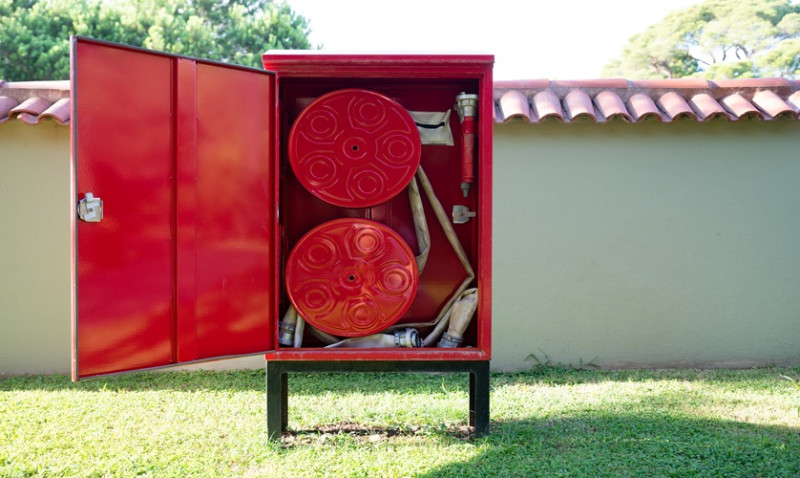
When we think about fire safety, what often comes to mind are smoke alarms, sprinklers, and fire extinguishers. But behind these essential systems lies an innovative and critical discipline—Fire Protection Engineering. Whether you're a DIY home enthusiast looking to stay safe while upgrading your property, a young professional exploring smart career options, or a seasoned tradesperson broadening your knowledge, understanding this field opens up valuable insights and opportunities. This article unveils the core of fire protection engineering, the essential skills you’ll need, and the exciting career routes you might consider in the UK.
What is Fire Protection Engineering?
Fire protection engineering is the science and practice of designing systems and strategies to prevent, control, and safely manage the risk of fires. These engineers assess building materials, fire spread behaviours, human safety protocols, and mechanical systems, integrating these elements into a comprehensive design intended to safeguard people and properties.
Unlike firefighting, which reacts to active threats, fire protection engineering focuses on proactive design and construction methods. Engineers in this field apply principles of physics, chemistry, and engineering to anticipate fire hazards before they manifest, ensuring that structures—whether residential homes or high-rise office buildings—meet the highest safety standards.
In the UK, this discipline plays a significant role in shaping compliance strategies with legal standards such as Approved Document B of Building Regulations and BS 9999 (Code of practice for fire safety in the design, management and use of buildings).
Whether you're upgrading your home or responsible for a major design project, understanding the fundamentals of fire safety design helps create not just beautiful spaces—but safer, smarter ones.
Key Skills Required in Fire Protection Engineering
Diving into fire protection engineering requires a unique blend of technical knowledge, creative problem-solving, and regulatory insight. Below are some of the cornerstone skills that successful professionals in this field must possess:
- Systems Thinking: Fire protection engineers must understand how different building systems—electrical, HVAC, structural—interact with fire suppression mechanisms like alarms, sprinklers, and ventilation controls.
- Knowledge of UK Regulations: Navigating national standards such as the Regulatory Reform (Fire Safety) Order 2005 and BS EN 12845 for water-based fire suppression demands both awareness and analytical skill.
- Communication Skills: Engineers regularly work alongside architects, local authorities, and project stakeholders. Being able to explain complex safety concepts in simple terms is vital.
- Problem-Solving: Every building is different, and each presents unique fire safety challenges. The ability to think critically and innovate solutions is key in adapting fire strategies to various configurations.
- Detail Orientation: From hazard assessments to documentation and compliance reports, accuracy is absolutely essential in this role.
For those with a DIY mindset or trades experience, these skills may already be partially developed—especially if you've handled building codes, electrical planning, or mechanical installation. With additional training, these capabilities can be transformed into a solid foundation for a fire protection engineering career.
Pathways into a Fire Protection Engineering Career
The route into fire protection engineering can be flexible, depending on your current level of experience and education. Here's a general roadmap tailored to aspiring professionals in the UK:
- Formal Education: Most career paths start with a degree in fire engineering, mechanical engineering, civil engineering, or a related field. Several UK universities offer BEng and MEng programmes that integrate fire safety modules.
- Apprenticeships and Training: If university isn't your route, explore Higher Level or Degree Apprenticeships in fire safety engineering or building services. Organisations like the Institution of Fire Engineers (IFE) support accredited programmes across the country.
- Experience-Based Certification: For seasoned tradespeople and designers, the IFE also offers pathways to gain recognition through assessment and certification, particularly beneficial for those already working in related industries.
- Work Experience and Internships: Join consulting firms, government bodies, or engineering firms that offer placements and real-world fire risk assessment projects. These opportunities give firsthand insight into the daily responsibilities of fire protection engineers.
The UK construction landscape is evolving—driven by demand for safer, greener, and more technically advanced structures. That means skilled fire protection engineers are more sought-after than ever.
Professional Roles and Where They Fit
Whether you're just starting out or seeking a career pivot, there are multiple tracks within the fire protection space. Here’s an overview of job roles and opportunities in the UK market:
| Role | Description | Typical Employers |
|---|---|---|
| Fire Protection Engineer | Designs systems for fire alarms, detection, suppression, and smoke control in buildings. | Engineering Consultancies, Government Agencies |
| Fire Risk Assessor | Evaluates buildings for fire hazards and creates reports to guide safety improvements. | Housing Associations, Local Authorities |
| Fire Compliance Officer | Ensures developments meet fire codes and regulations. | Construction Firms, Developers |
| Sprinkler/Detection System Designer | Specialises in designing automatic fire detection and suppression schemes. | System Installers, M&E Contractors |
| Academic/Researcher | Investigates materials, fire dynamics, and advanced suppression methodologies. | Universities, Research Institutes |
Each path offers diverse challenges, from hands-on design to strategic consulting. Many engineers specialise further, focusing on heritage buildings, industrial facilities, or high-tech environments where bespoke fire solutions are essential.
Launching Your Career: Resources and Next Steps
If fire protection engineering has sparked your curiosity, you’re already taking the first step toward a rewarding profession. Here’s how to build momentum:
- Join Professional Associations: Membership with groups like the Institution of Fire Engineers (IFE) or the Fire Protection Association (FPA) gives access to events, training, and mentorship.
- Explore Online Courses: Providers like the BRE Academy and FutureLearn offer introductory courses in fire safety, many of which are tailored to UK regulations and practical applications.
- Network Across Trades: Speak with architects, fire brigade liaison officers, and M&E consultants to better understand where fire protection engineering fits into broader project delivery.
- Stay Informed: Regularly read industry magazines such as Fire Safety Matters or Construction News to keep up with new legislation, product innovations, and project trends.
For hobbyists and DIYers, enhancing knowledge of fire-resistant materials, home smoke control, and smart integration (like linking fire detectors to home automation systems) can not only improve your living space—it could also lay the groundwork for professional growth.
Final Thoughts
Fire protection engineering is an inspiring fusion of safety, technology, and human-centered design. Whether you're refurbishing your own home or designing for hundreds, integrating fire-safety thinking into your work is not only functional—it’s lifesaving.
The UK’s demand for skilled fire protection experts is on the rise, offering a secure and fulfilling pathway for individuals with backgrounds in trade, design, or science. From dynamic job roles to specialised training routes, the opportunities are vast and the work is meaningful.
So whether you plan to protect your family home or shape the skyline with safer, smarter construction—fire protection engineering might just be the spark that powers your future.






